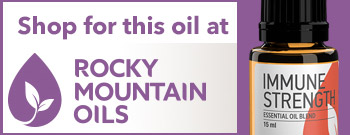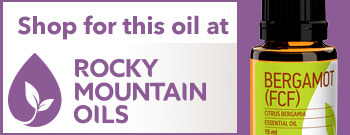The Essential Oil Shield
A great number of influenza strains have become resistant to available medications, making it a priority to develop new ways to treat the annual onslaught of viral infections. Essential Oils (EOs) and their components usually act in numerous steps against the viral life cycle, making resistance against EOs incomplete, perhaps only affecting one or more steps in its life cycle. This makes Essential Oils a prime candidate as a natural remedy to successfully combat such viruses as COVID-19, a/k/a Coronavirus and Influenza.
Health-conscience families want not only to have a Federal health system that is prepared to deal with COVID-19 virus, but also to have a personal plan to prevent and combat the pathogens responsible, before it becomes an emergency. Essential Oils (EOs) have been a well-tried and tested natural remedy for all respiratory ailments throughout history.
Most essential oils are best utilized in a diffuser or otherwise through inhalation since they are extremely potent.* Yet there are some oils that can be consumed with great caution and others that can be applied directly to the skin mixed with a carrier oil. A few essential oils even make excellent cleaning compounds to disinfect solid surfaces.
*Most essential oils should not be ingested and can be fatal. Never use essential oils directly on the skin without a carrier oil such as fractionated coconut oil, jojoba, sweet almond, grape seed or olive oil.
Studies of essential oil blends in vitro recognize the health benefits of essential oils to combat fungus, bacteria and viruses. A blend of Essential oils such as Pure Herbal Immunity Blend placed in a diffuser, diluted in clean, purified or distilled water allows the maximum benefit of each of the oils to combat a variety of ailments by reducing the pathogens (viruses, bacteria, fungi) in the air of any given area. Inhaling the vapors is the method used by the ancients to mitigate pathogens that have been inhaled into the lungs. Through the experience of those who have used Essential Oils since the earliest times, we have trusted knowledge of how each Essential Oil reacts in the environment and in the body whether by inhalation, on the skin, or by ingesting. For respiratory ailments, including COVID-19 and Influenza, the Essential Oils listed at the end of this article promise the most efficacy in combating the pathogens responsible.
Before the first sign of any respiratory ailment, begin building an ‘Essential Oil Shield’ around your family to attempt to keep the air in your home free from viruses, bacteria, and fungi. Run a diffuser for 30 minutes with an essential oil blend or blend a few drops of some of the EOs outlined below in a diffuser before occupying the room. If symptoms of Influenza begin, sit in a room with the diffuser, rub several drops of Eucalyptus EO combined with a carrier oil into chest, back, and neck and begin taking Oregano Oil Capsules as directed on the bottle along with vitamin C (Calcium Ascorbate form). Get in the habit of washing hands frequently and cleaning all hard surfaces with antibacterial, antiviral EO mixtures.
Bergamot Essential Oil (Citrus Bergamia or Citrus Aurantium)
Bergamot Oil contains elements that are antibiotic and disinfectant in nature, preventing the growth of bacteria, viruses and fungi. It has proven to effectively combat infections, including those of the skin when applied with in carrier oil.
Eucalyptus Essential Oil (Eucalyptus glogulus and Eucalyptus radiate) a/k/a Blue Gum or Tasmanian Blue
Eucalyptus has strong antibacterial, antiviral, and expectorant properties. It can be used in diffusers as well as topically in a carrier oil for all respiratory ailments such as influenza and when applied to the chest, neck and back. It is considered an effective therapy for respiratory illnesses to also relieve muscular aches and pains associated with colds and flu, clears lung phlegm, and improves breathing function. Only a few drops in a carrier oil are necessary for topical application.
Tea Tree Essential Oil (Melaleuca Alternifolia)
Tea tree oil is known for its antimicrobial properties (in fighting superbugs). It is useful in combating a variety of respiratory infections. It should never be ingested, but can be used in a diffuser or in a carrier oil on the skin. It is also very useful as a cleaning agent to rid hard surfaces of pathogens.
In 1923, a chemist ‘proved’ the plant’s ability as an antiseptic when he determined that tea tree oil was about 12 times stronger than carbolic acid, a substance used to clean wounds before antibiotics were in use. During World War II Australian soldiers were given tea tree oil in their first aid kits as the go-to antiseptic.
Cinnamon Essential Oil (Cinnamomum zeylanicum/Cinnamomum verum/Laurus cinnamomum)
The antibacterial and antiviral properties make Cinnamon EO a healthy solution to help clear up coughs, colds, and chest congestion. It has even been effective in fighting illnesses caused by several strains of bacteria that are resistant to antibiotics, like E. coli and Staphylococcus. Cinnamon EO will also aid in preventing viral illnesses like the flu. In addition to diffusing, some people take a teaspoon of honey and add a small amount of cinnamon to soothe a sore throat and relieve congestion. A word of caution, cinnamon can taste very sharp or ‘hot’ to the taste.
Clove Bud Essential Oil (Eugenia carophyllata or Syzygium aromaticum)
While Clove Bud Essential Oil is best known for oral and digestive health it also is helpful in relieving respiratory problems, such as cough, colds, sinusitis, asthma, and tuberculosis. Clove oil has antibacterial properties when introduced as a vapor. According to a study from 2012, Healthline (www.healthline.com) “clove oil had the ability to kill staph bacteria cells in liquid culture and in biofilm. A biofilm is a community of bacteria that lives together, shielded by a protective, slimy film. Most antibiotics aren’t effective at penetrating the biofilm and killing staph bacteria but, according to this study, clove oil seems to be able to.” Clove Bud EO is high in eugenol, which shows extensive anti-influenza activity in mid-late stages of the influenza life cycle.
Rosemary Essential Oil (Rosmarinus officinalis)
While Rosemary Essential Oil is known for its benefits in hair growth and memory, it actually detoxifies the liver, preventing damage to this vital organ. Rosemary Essential Oil has a high antioxidant value making it a powerful agent to fight free radicals and inflammation. The natural chemical in rosemary that is responsible for this is carnosol, which is known for its anti-inflammatory properties.
Sweet Orange Essential Oil (Citrus sinensis)
Know to have anti-inflammatory and anti-bacterial and antimicrobial properties. Most Citrus EOs boost mood and have a calming effect on the body.
Oregano Essential Oil (Origanum vulgare)
Oregano Essential Oil acts as an expectorant because it prevents and treats symptoms of respiratory ailments. It will loosen and/or eliminate mucus and phlegm in the respiratory tract and soothes inflamed lungs and throat to prevent coughing. Oregano Essential Oil serves as a natural antiviral, antibacterial, antifungal and anti-inflammatory. Thus, it provides protection against viral, fungal and bacterial infections such as the flu and COVID-19 since it is a viral infection. Oregano essential oil stimulates the production and function of white blood cells, the body’s main line of defense so that it strengthens your immunity against viruses and other pathogens.
Oregano EO can be safely ingested in a gel capsule, which can be purchased at many health food outlets. Do not drink the liquid without being contained in a capsule because it is concentrated and will burn your mouth and throat. Or, you can put a few drops in an EO diffuser for cleansing the air of pathogens.
Influenza and/or COVID-19 (aka Coronavirus) can exhibit all or some of these symptoms: fever, chills, runny nose, thick mucous, sore throat, coughing, sneezing, headache, muscle aches, and a general feeling of malaise. In some cases there can be chest pain, vomiting and/or diarrhea.
In the case of COVID-19, loss of taste and smell and loss of appetite, diarrhea, vomiting and abdominal pain can occur before the onset of respiratory symptoms. In fact, digestive symptoms become more acute as the severity of the disease increases. It appears that patients with digestive symptoms have a worse clinical outcome. Knowing this can lead to earlier treatment and result in a more expeditious quarantine to minimize transmission.
Wash hands often with a low PH soap and clean common area surfaces with an Essential Oil blend designed for that purpose, or by using Tea Tree EO mixed with baking soda water. Cinnamon EO and Sweet Orange or Clove Oil can be added as well.
Prevention is the key to staying healthy. Take the steps today to protect you and your family from the unknown pathogens that may be lurking in your environment. Essential Oils can be your first line of defense!




